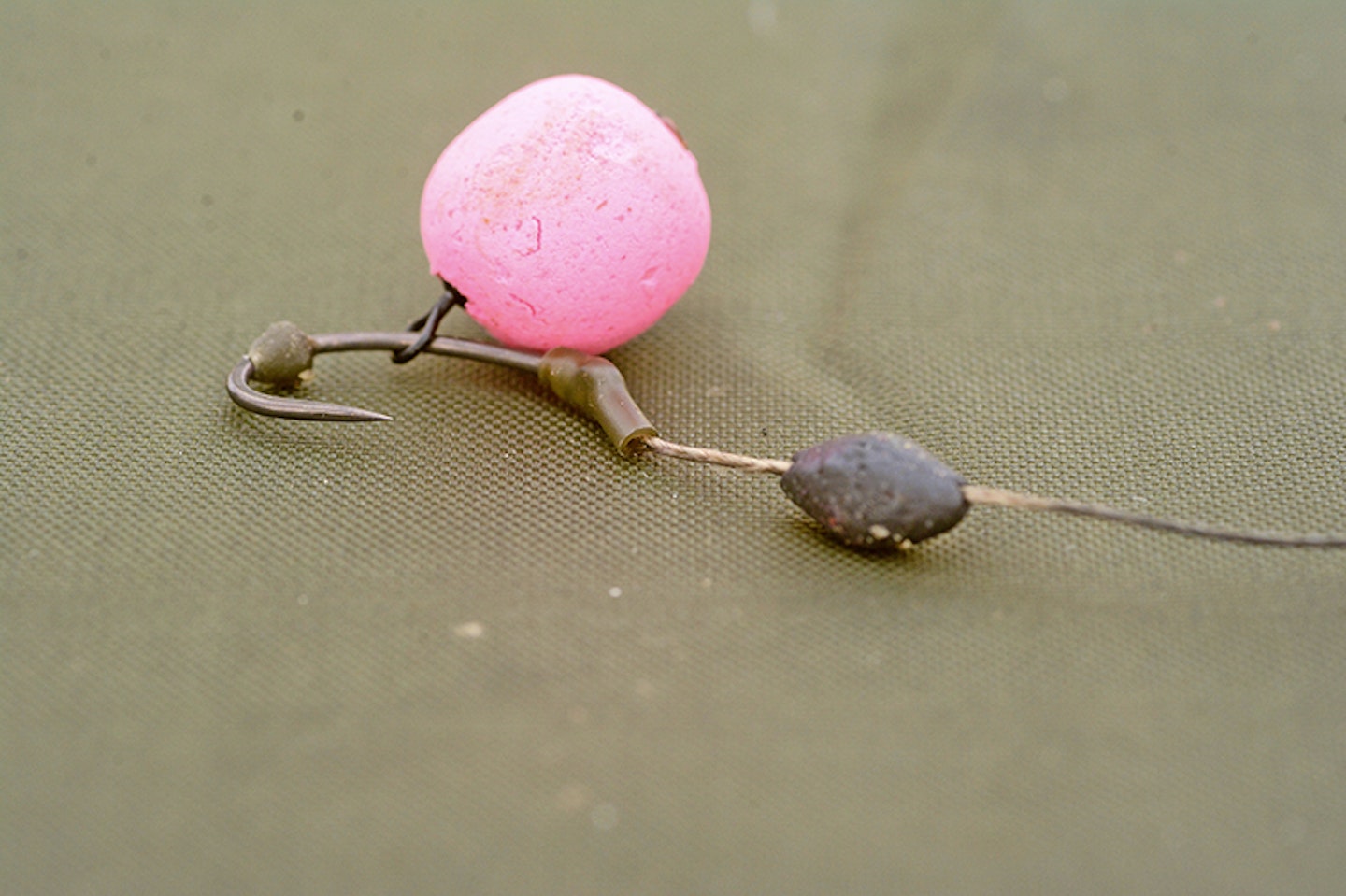As presentations go, solid PVA bags offer a number of advantages that few other set-ups can rival.
Firstly, because the rig is safely packed inside the bag, they can be fished over pretty much any lakebed type and you can be confident your hookbait will be presented effectively. There’s no need to worry about the hook becoming masked by any weed or detritus as it falls through the water. This makes it perfect for casting towards showing fish when you’re unsure of what the lakebed is like.
IF YOU ARE NEW TO CARP FISHING, OUR BEGINNERS GUIDE IS FULL OF HELPFUL ADVICE.
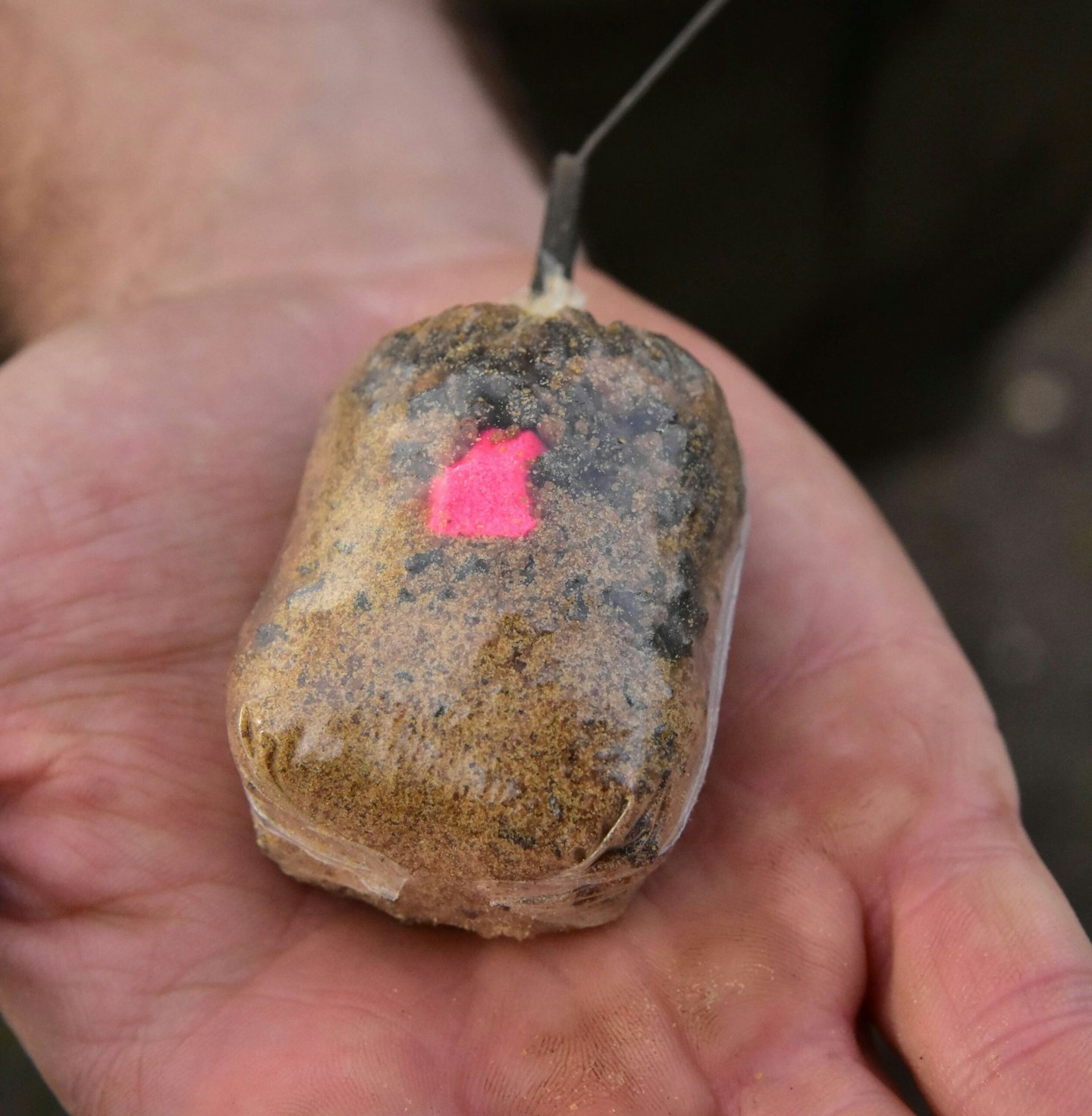
A short hooklink in conjunction with an inline lead offers unrivalled hooking potential as fish come into contact with the weight of the lead much quicker. Cast out on it’s own, this set-up could easily bury into silt but, as it’s placed inside the bag, this isn’t a problem.
Tying up a few bags prior to your session means you can have all three rods fishing in no time at all and, once the bag melts, you’re left with an irresistible mouthful of bait around your hookbait.
How to make a solid bag
STEP 1)
Start by placing a small quantity of your chosen mix in the bag followed by your hookbait. Then add more bait, followed by the lead and then top up with yet more bait mix.
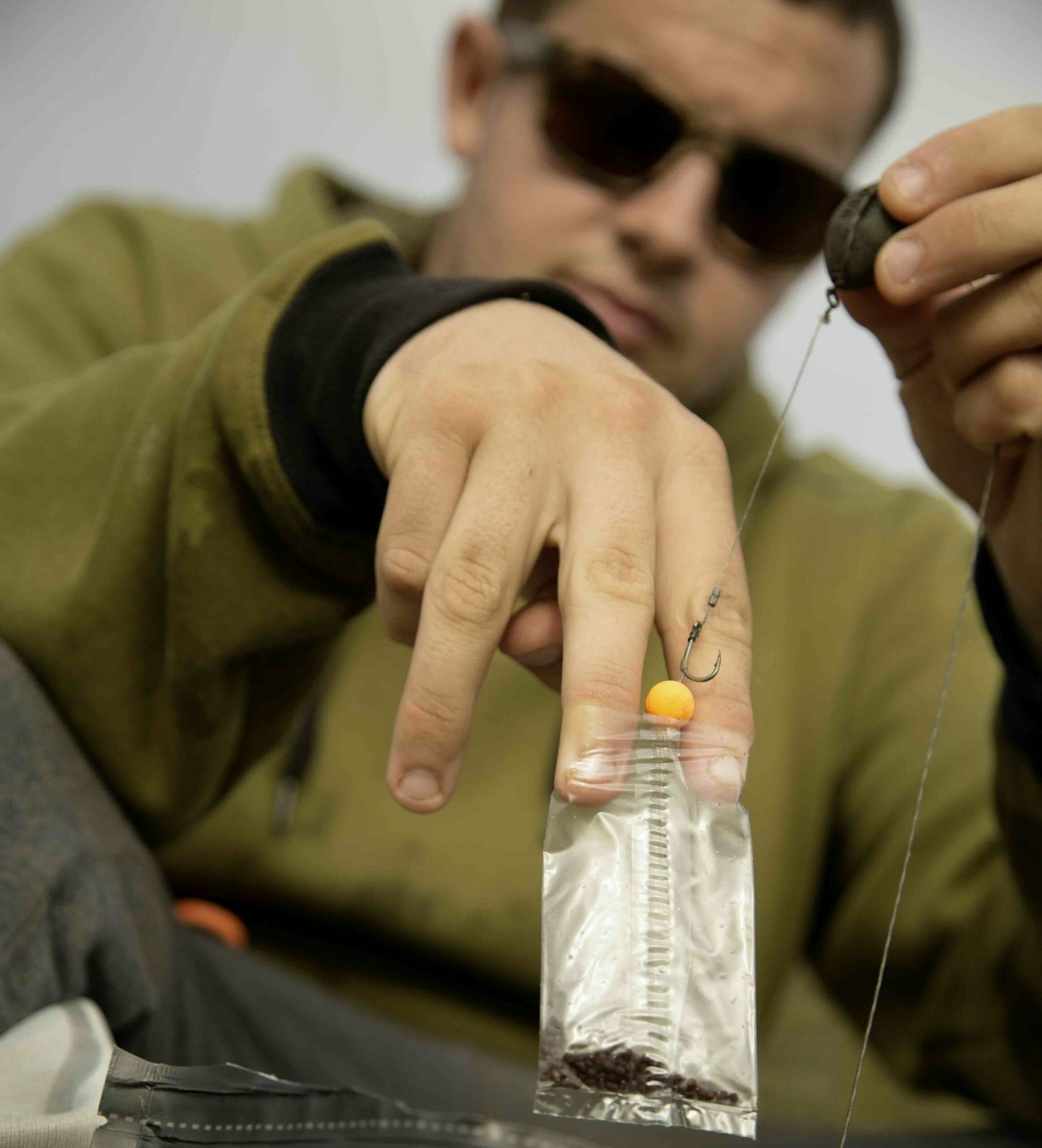
STEP 2) Half fill the bag will pellets or groundbait, then add the lead so it sits in the centre of the bag!
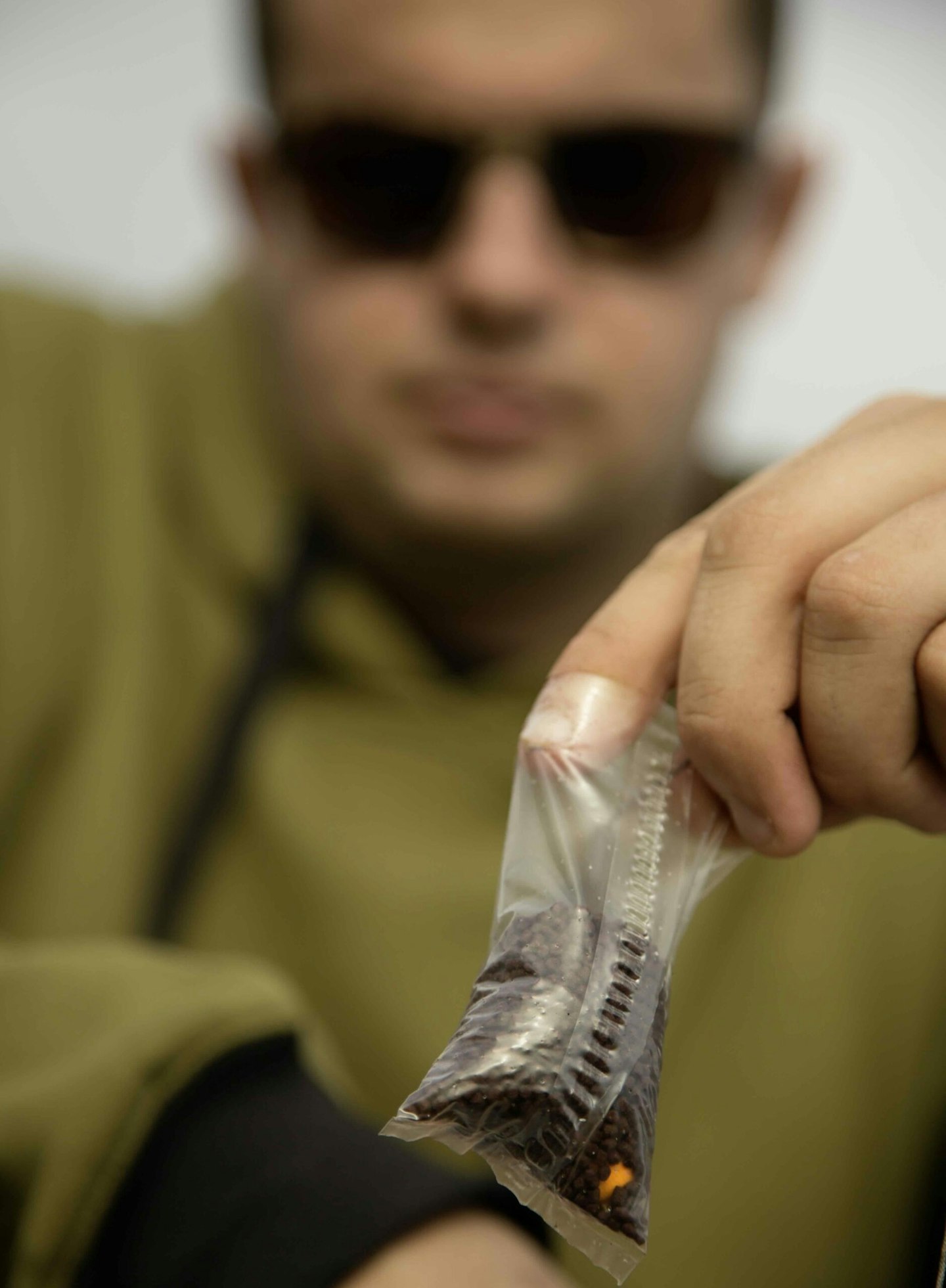
STEP 3)
Fill the remaining space above the lead up with pellets, leaving enough room to twist the top of the bag to secure the contents inside. Take your time and shake the bag as you twist to get its as compact as you can, the more compact the better it will cast.
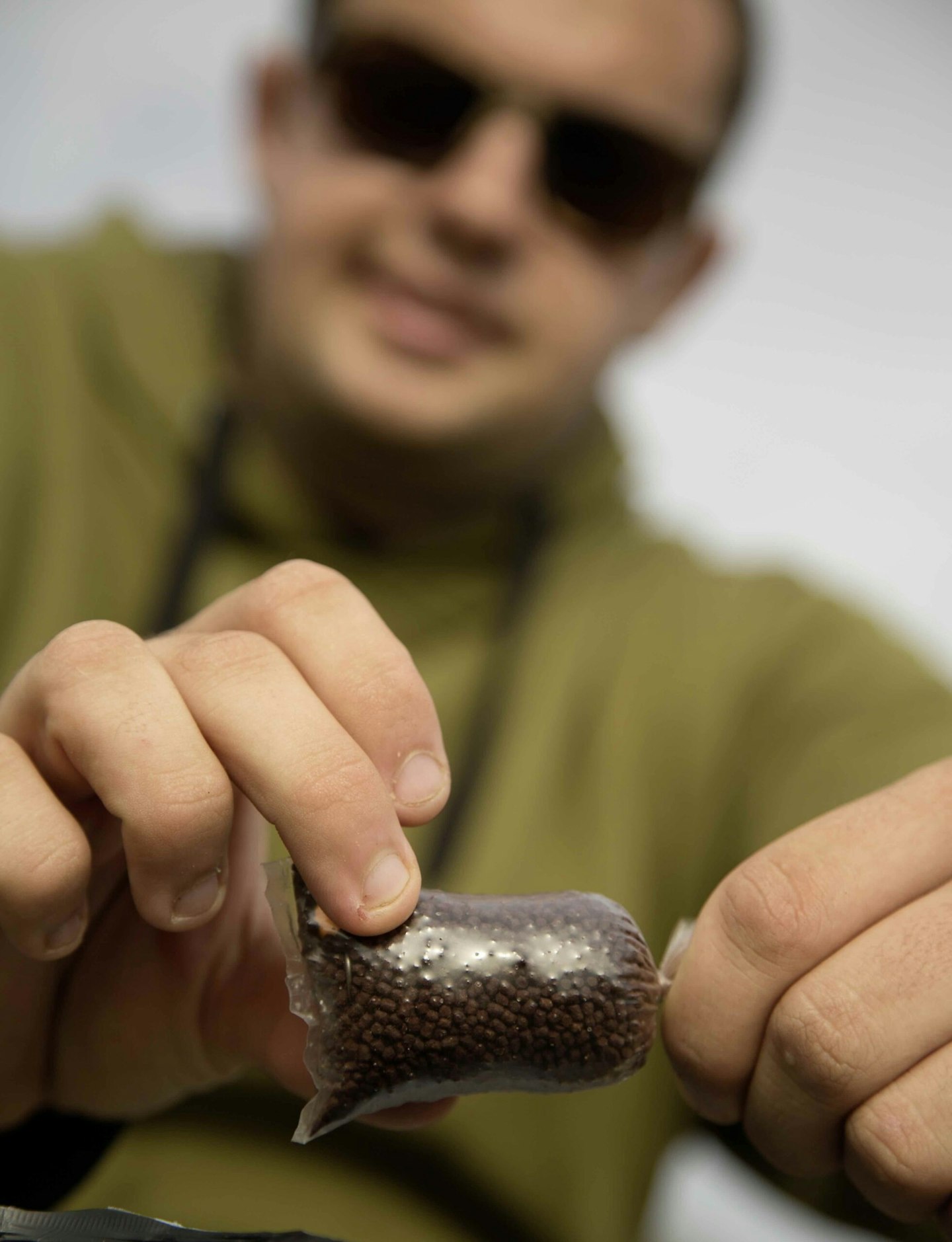
Step 4)
Once the bag is tight, wrap some PVA tape around the top and knot to secure it. While you can lick the perimeter, this ensures it will stay in place for long casts. Fold the corners at the bottom of the bag and secure them by licking and sticking them down.
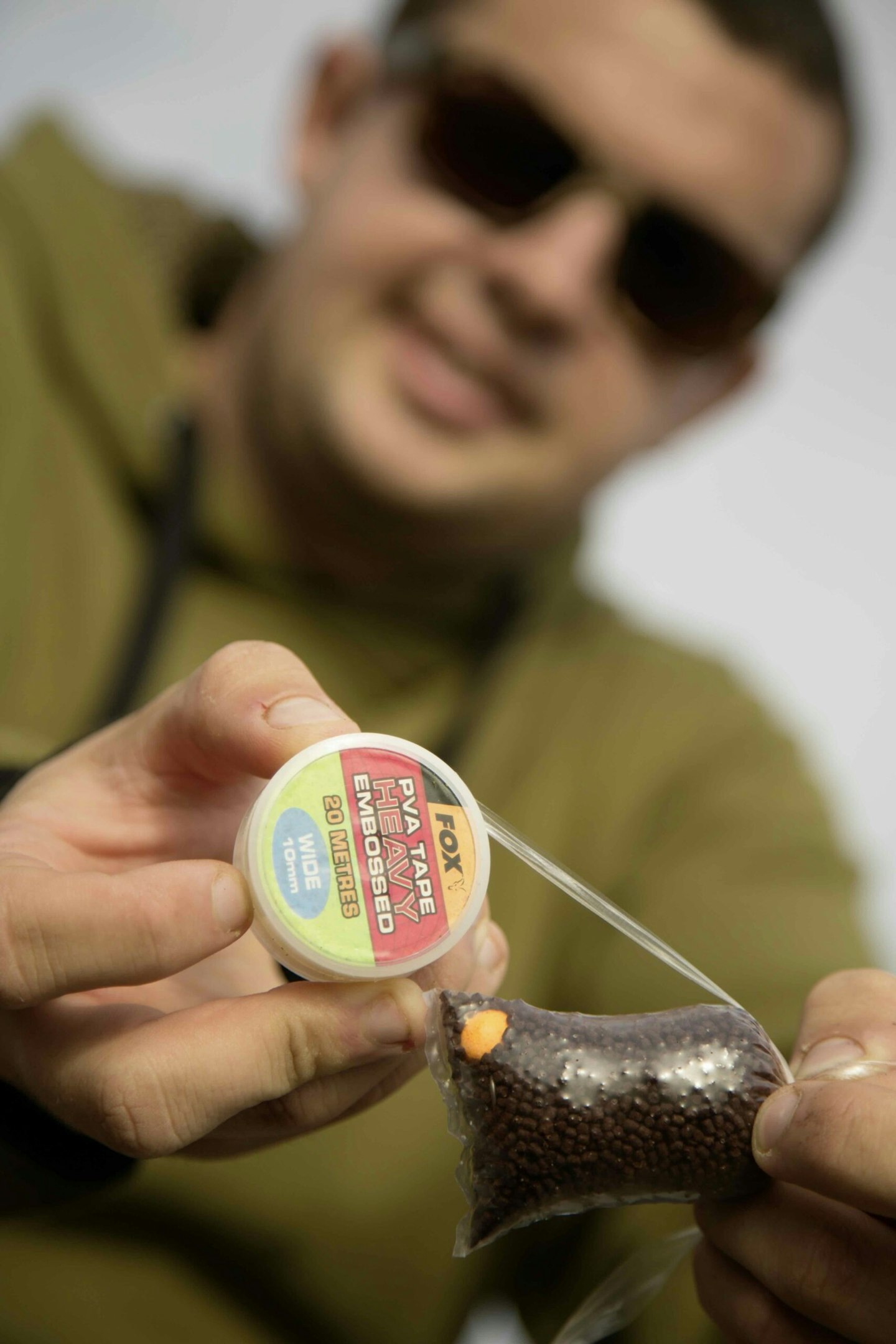
How to tie the supple braid rig for solid PVA bags
STEP 1)
Take a short length of supple braid and attach to a curved shank hook using a knotless knot.
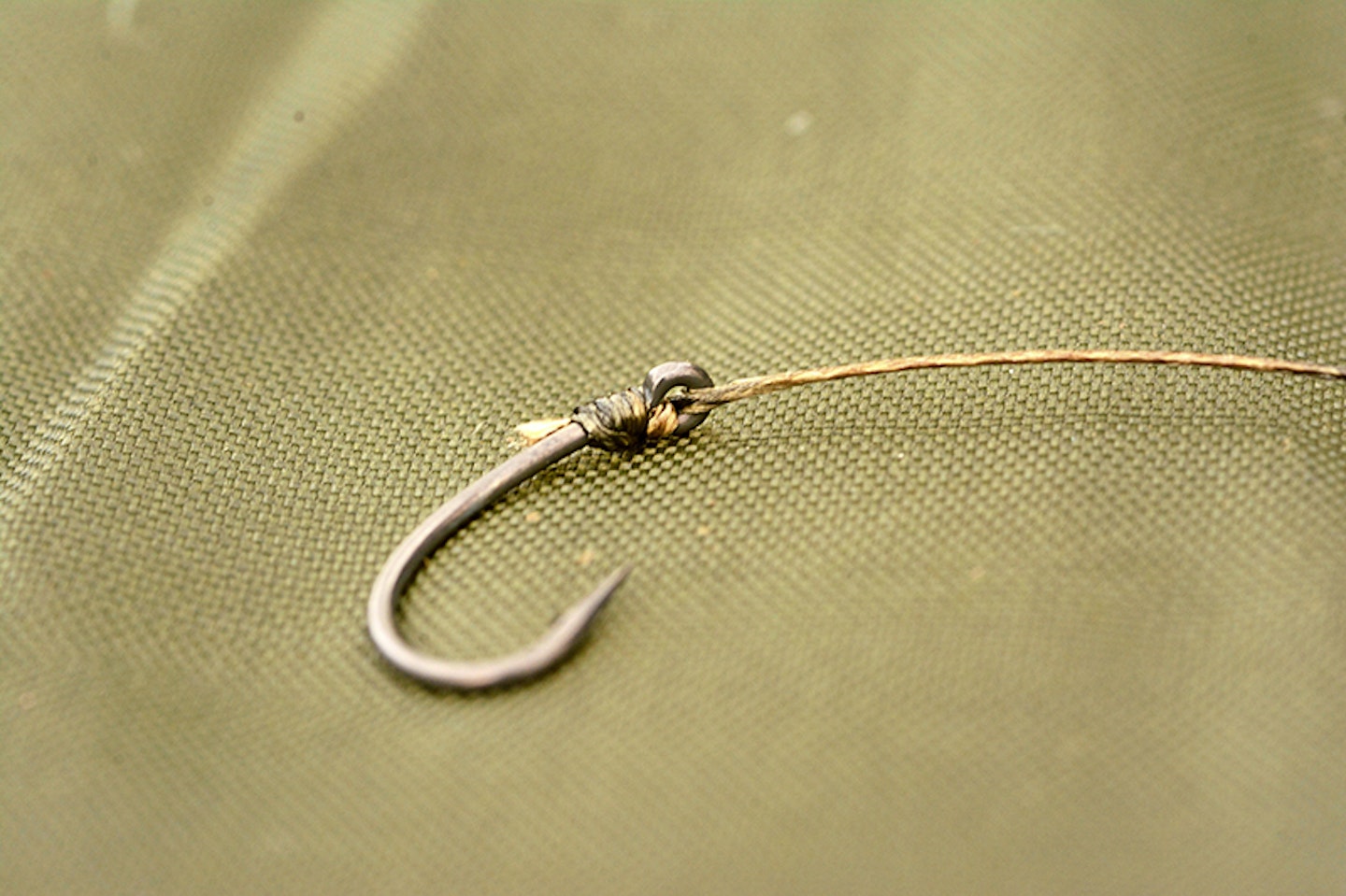
STEP 2)
Trim the tag end of the knotless knot and then slide a small rig swivel on to the hook and trap this with a hook bead, usually just opposite the barb is a great place to leave it.
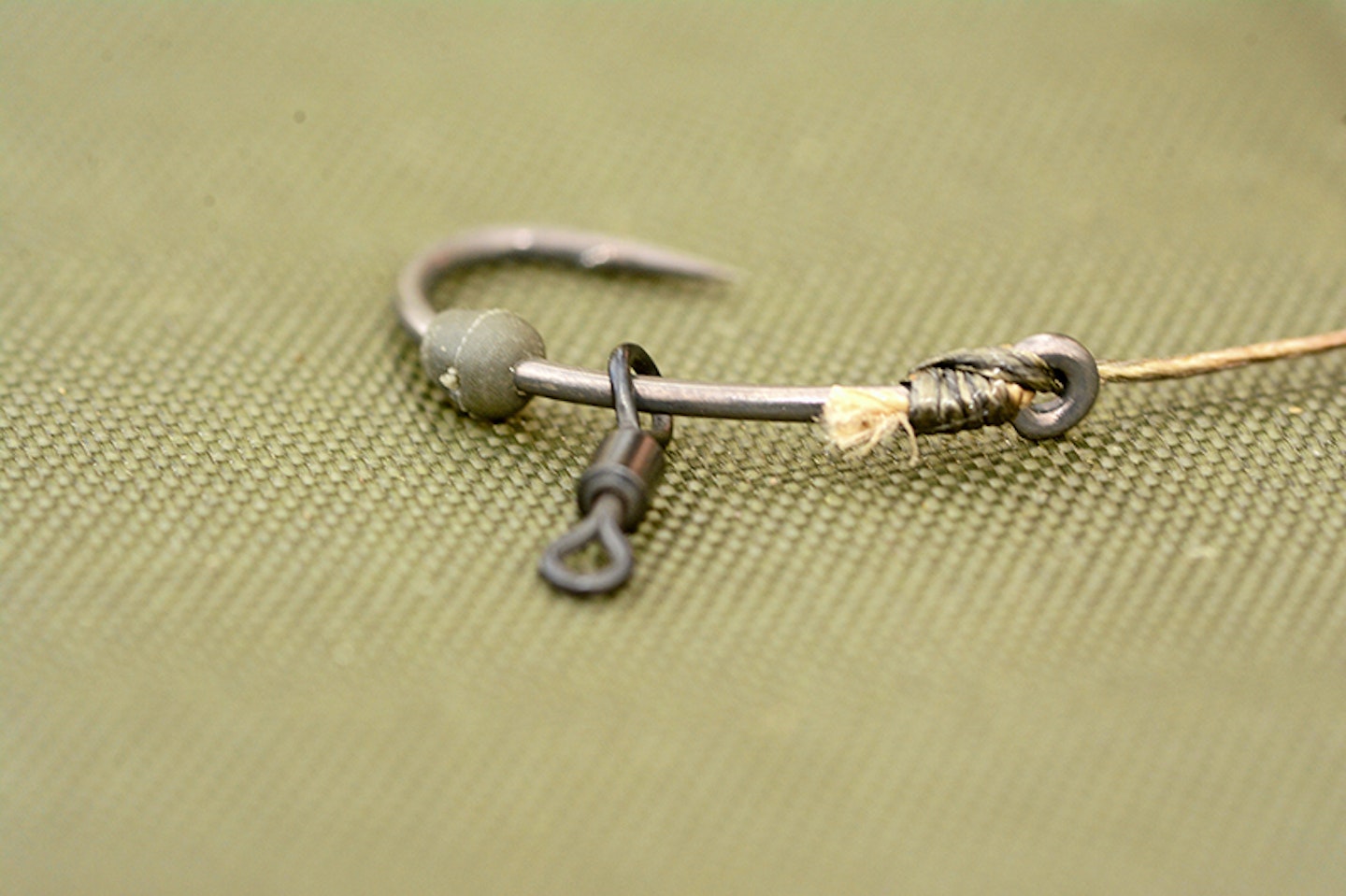
STEP 3)
Attach your hookbait to the swivel using floss, adding a small kicker to the eye of the hook to give the rig better hooking properties. A blob of putty can be used to pin down a pop-up but the rig works equally as well with a wafter. Tie a loop in the other end so you can attach it to your swivel on the lead. The rig works best at around 4inches in length.
